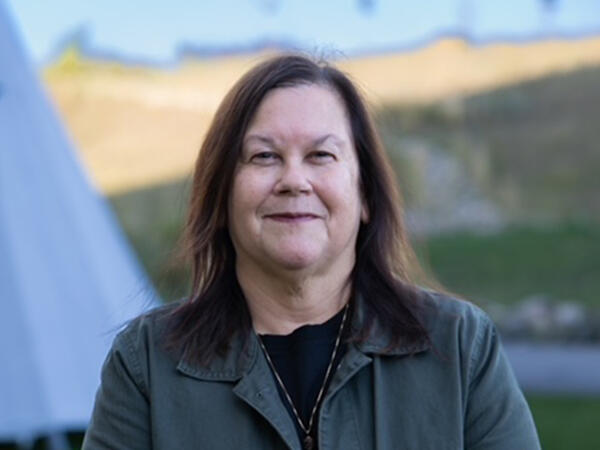Being a graduate student can be hard. Diving into new scientific territory is daunting. Success requires resilience, persistence and support from supervisors and mentors.
Camille Alam and Amila Omeragic, students in the Department of Pharmaceutical Sciences at the Leslie Dan Faculty of Pharmacy, are on the right path. Working alongside Dr. Reina Bendayan in her drug transport and therapeutics lab, Camille and Amila earned significant recognition at the recent international conference on Cerebral Vascular Biology(CVB) in Melbourne, Australia. Camille gave an oral presentation to an audience of international experts and Amila won a coveted poster prize, one of only six awards out of over 200 submitted posters.
The CVB is a biennial meeting supported by International Brain Barriers Society (IBBS), an international scientific and educational not-for-profit organisation that supports scientific and clinical research on the biological barriers in the central nervous system.
Inspiring international collaboration
Since 2014, Camille Alam has been investigating the uptake of folate in the brain with a focus on developing new treatments for neurometabolic disorders that cause early childhood neurodegeneration. This is a recent research project in the Bendayan lab supported by the Natural Science and Engineering Research Council (NSERC).
Folates are water-soluble vitamins that play a critical role in brain development, function and repair. Because of a rare genetic mutation, some children suffer from dramatically reduced brain folate levels. In turn, this shortage causes a regression in speech and movement abilities.
“Essentially these children grow up to be healthy until they are about two years old at which point they begin to suffer from sleep disorders, speech and movement issues. They begin to regress meaning they start to lose previously acquired movement and speech,” said Camille.
To date, folate transport in the brain has been investigated primarily through folate receptor alpha. However, at least two other transport systems for folates exist – the proton-coupled folate transporter (PCFT) and the reduced folate carrier (RFC).
Camille’s work suggests that targeting the RFC is a potential new way to treat folate deficiency in the brain. In particular, her research has shown that by boosting the RFC with Vitamin D, this alternate carrier might function at a near-healthy level, potentially compensating for impaired function in the other carriers.
The presentation in Melbourne was Camille’s first at a major conference. “It was a bit nerve wracking, but it was a really good opportunity and we were able to connect with potential collaborators based in Boston,” she said.
Participating in the exchange of cutting-edge ideas
For her part, Amila Omeragic is investigating cognitive impairment associated with HIV-related brain inflammation. HIV-associated neurocognitive disorders, also known as HAND, affect approximately 25 percent of people living with HIV to the extent that proper daily functioning is impaired.
While HIV does not grab Western headlines as it used to just a few decades ago, as many as 36 million people worldwide are currently living with the disease. “Although antiretroviral therapies are allowing people to live longer, cognitive impairments like memory loss remain prevalent,” said Amila.
Through her research, Amila is trying to reverse cognitive impairment by targeting inflammatory pathways in the brain. In order to do this, she has recently implemented a rodent model of HIV-associated brain inflammation that better reflects the chronic nature of the disease. “This development has given us a more clinically relevant model to study,” said Amila.
She is now investigating how a sub-unit of a major family of nuclear receptors regulates brain inflammation. The data collected suggests that targeting the PPARgamma isoform could provide an option for treating or even preventing HIV-associated brain inflammation.
For Amila, sharing her work at the CVB conference was a memorable experience. “It was exciting to have access to high-profile scientists and see the debate and exchange of ideas,” said Amila. “It was very cool to actually meet some of these scientists in person – to match a face to the literature.”
More News
Image

Pharmacy alum sees change in acceptance of Indigenous cultures in health care
During Deborah Emery’s 40-year pharmacy career, she provided care in Sioux Lookout, Thunder Bay and Manitoulin Island.
Read More
Image

Grad to Watch: Jackie Fule Liu’s research focuses on better outcomes for diabetes patients
A recent PhD graduate, Jackie Fule Liu combines hands-on skill and big-picture thinking to help tackle diabetes care challenges.
Read More
Image

U of T community members recognized with Order of Canada
Congratulations to Dean Emeritus and Professor K. Wayne Hindmarsh on his appointment.
Read More